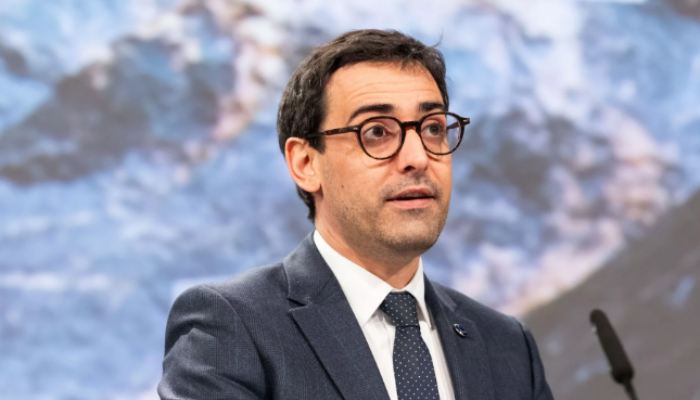
In a rapidly shifting global landscape, the European Union (EU) is racing to reduce its reliance on critical raw materials, particularly lithium, which is essential for electric vehicle (EV) batteries and the clean energy transition. The EU’s urgency comes in response to geopolitical tensions and its dependence on foreign suppliers like China, which controls a significant portion of the global lithium market.
EU’s Push to Secure Critical Raw Materials
To address growing concerns about raw material dependency, the EU has outlined a plan to boost domestic production of key materials, including lithium, cobalt, and rare earth metals. The European Commission has identified 47 priority mining and processing projects across 13 member states, designed to reduce reliance on non-EU sources.
Stéphane Séjourné, the Executive Vice-President of the European Commission, highlighted that the EU does not want to replace its dependence on fossil fuels with dependence on raw materials controlled by one country, notably China. In his remarks, Séjourné made a clear comparison between China’s grip on lithium and Russia’s historical stranglehold on natural gas supplies to Europe, which was weaponized during the lead-up to the war in Ukraine.
The Role of Lithium in Europe’s Clean Energy Future
Lithium, essential for EV batteries and other clean energy technologies, is one of the 34 critical raw materials the EU has identified for its future growth. As the world shifts toward green energy and digital economies, access to these materials is vital. The EU is focusing on securing these resources to ensure energy independence and to fuel the transition from fossil fuels.
The European Commission is working to ensure that the mining and processing of these materials take place within Europe. It aims to achieve a target whereby, by 2030, 10% of mineral extraction, 40% of processing, and 25% of recycling of critical materials will be done within the EU.
EU’s Action Plan: Fast-Tracking Permitting for Raw Materials
In order to expedite the development of critical raw material projects, the EU has committed to fast-tracking permits for mining and processing operations. Mining projects will have a 27-month timeframe for approval, while processing and recycling projects will be fast-tracked to 15 months.
This move comes as part of the EU’s broader strategy to secure the supply of lithium and other critical materials, reducing its dependence on external suppliers like China. The EU plans to meet its domestic goals for lithium and cobalt and make substantial progress in securing other strategic materials, such as graphite, nickel, and manganese.
Financial Support to Boost Domestic Production
The European Commission is also working to secure financial backing for these projects. The estimated capital investment needed for these initiatives is €22.5 billion. To support this, the European Investment Bank has already pledged €2 billion in funding for the current year, facilitating the financial resources needed to bring these projects to life.
The establishment of the Critical Raw Materials Board by the EU aims to assist with the planning and financing of these projects, ensuring that member states meet the targets outlined under the Critical Raw Materials Act, adopted in 2024.
Geopolitical Tensions and Global Competition for Lithium
The EU’s strategy also comes amid increasing competition for critical raw materials. The United States, for example, has also made moves to secure its supply of raw materials, including critical minerals from Greenland, Ukraine, and Canada. Although the EU is focused on its own long-term strategy, Séjourné acknowledged that growing geopolitical tensions are influencing the speed at which countries like the EU and the US are acting to secure these resources.
Despite the urgency, there are challenges. Environmental groups, such as the EU Raw Materials Coalition, have raised concerns over the transparency and environmental sustainability of these mining projects. The risk of public opposition to mining activities, as seen in Portugal and Serbia, could slow down efforts to increase domestic production of these critical raw materials.
Ensuring Social Acceptance and Sustainable Practices
As the EU pushes to ramp up its production of lithium and other raw materials, it must address social and environmental concerns. Public trust is crucial to ensuring that these projects are seen as beneficial to both local communities and the EU’s overall sustainability goals. Séjourné stressed the importance of community engagement, transparent practices, and ensuring that these projects align with both European and national interests.
Conclusion: The EU’s Path to a Secure and Sustainable Future
The European Union’s strategy to secure critical raw materials, such as lithium, for the green energy and digital transitions is essential to reducing dependence on external suppliers. As the EU accelerates its efforts to fast-track mining and processing projects, it must balance economic, environmental, and social considerations to ensure that it builds a sustainable supply chain for the future. By achieving its targets for lithium and other critical materials, the EU can reduce reliance on countries like China, ensure energy security, and remain competitive in the global economy.
In conclusion, the EU’s commitment to securing its own supply of raw materials is an important step in the region’s transition to a green economy. With the right balance of investment, innovation, and social responsibility, Europe can reduce its vulnerability to geopolitical pressures and secure a sustainable future for generations to come.
